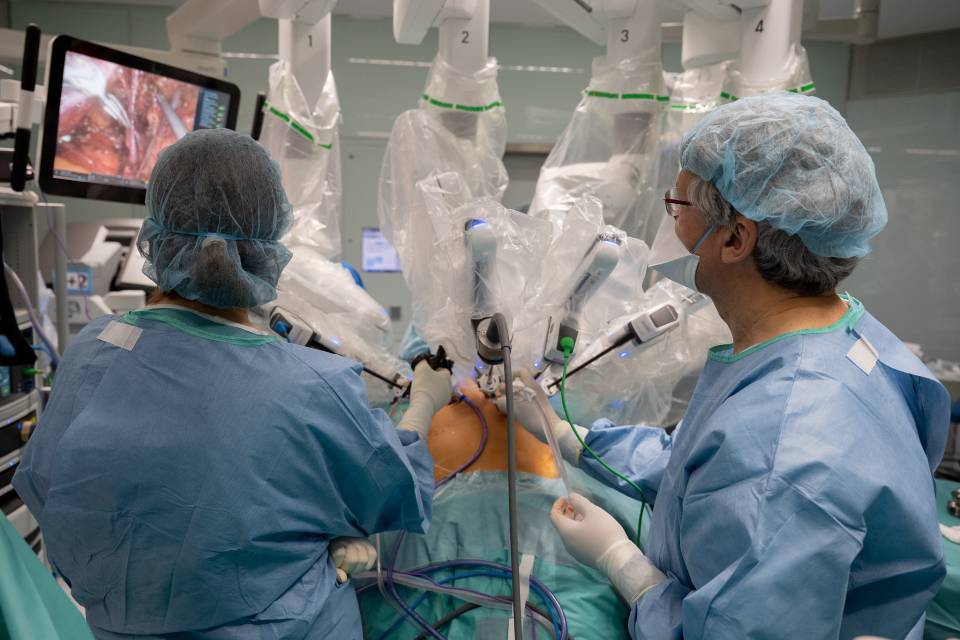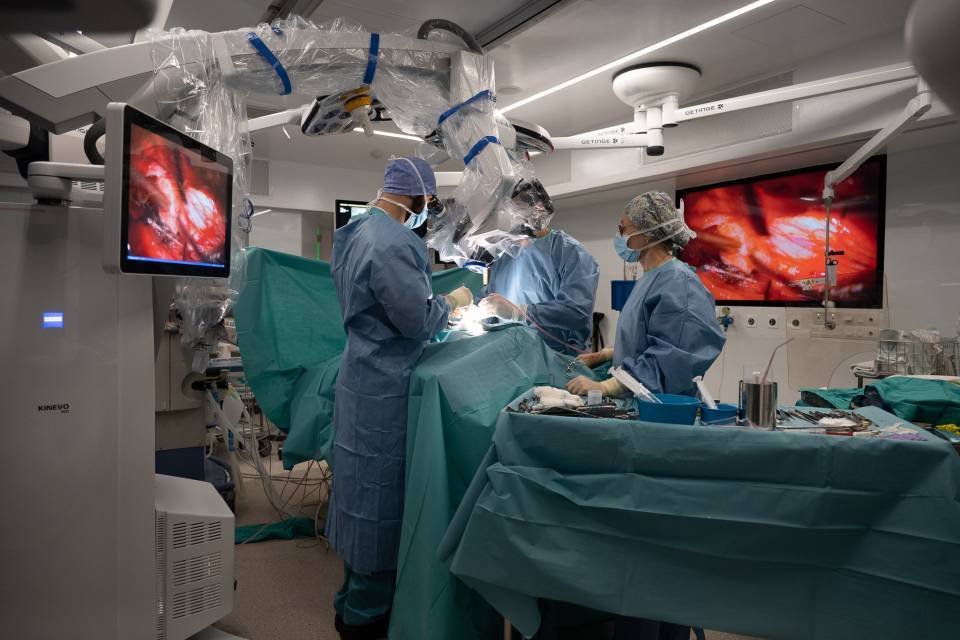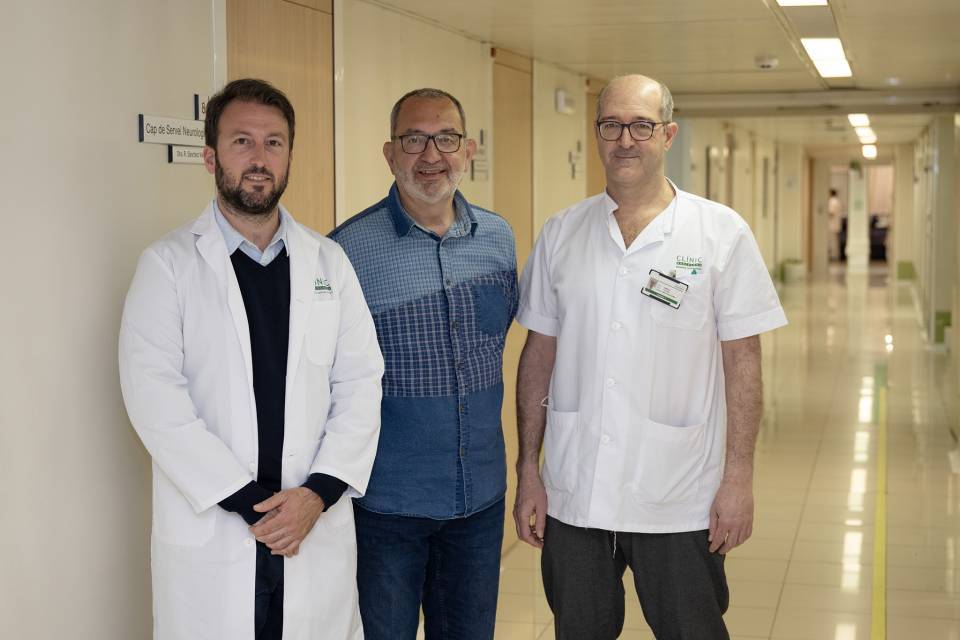News related with the service
Clínic Barcelona
Clínic Barcelona
March 27 2025
Clínic Barcelona
Clínic Barcelona
June 7 2023
The Hospital Clínic Neurosurgery Service consolidates its commitment to innovation and robotic surgery
Clínic Barcelona
Clínic Barcelona
April 28 2023


